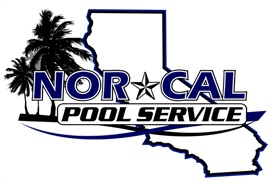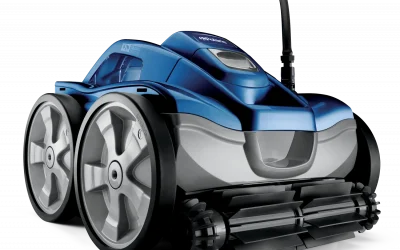As a homeowner with a swimming pool, you’re likely looking for ways to reduce your energy costs while maintaining a beautiful and functional outdoor space. At NorCal Pool Service, we specialize in helping homeowners like you implement energy-efficient solutions that not only save you money but also minimize your environmental impact.
Modern technology has made it possible to transform your home pool into an eco-friendly oasis. By incorporating various systems and upgrades, you can significantly reduce your energy consumption and operating costs. From simple additions like pool covers to more advanced pool upgrades like variable speed pumps and smart automation, there are numerous options available to enhance your pool’s efficiency.
By implementing these solutions, you can enjoy your pool while reducing your monthly utility bills. For professional installation and maintenance services, contact NorCal Pool Service at 925-549-6801 or email us at servicerequest@norcalpool.com.
The Hidden Cost of Pool Ownership
The expense of maintaining a pool goes beyond the initial construction costs. With over 8.5 million residential pools in the US, their energy consumption is substantial.
Understanding Your Pool’s Energy Consumption
Your pool pump is likely your home’s second-largest energy user. To manage these costs, understanding your pool’s energy consumption patterns is crucial.
- Identify the components that consume the most energy.
- Pumps are typically the primary consumers.
- Energy-efficient upgrades can reduce costs.
Why Energy Efficiency Matters
For pool owners, energy efficiency impacts monthly costs and affordability. Modern technologies can reduce energy consumption by up to 70-90%.
Variable Speed Pumps: The Ultimate Energy-Efficient Pool Upgrade

The most impactful energy-efficient upgrade for any pool system is undoubtedly the variable speed pump. Unlike single-speed pumps that operate at full power constantly, variable speed pumps can adjust their RPMs (revolutions per minute) to match the specific needs of different pool functions.
How Variable Speed Pumps Work
Variable speed pumps work by changing the RPMs of the motor to be more efficient. This results in considerable energy savings; reducing pump speed by half allows the pump to use just one-eighth as much energy.
Cost Savings and ROI of Variable Speed Pumps
The cost savings from variable speed pumps are substantial. Most homeowners recoup their investment within 1-2 years through reduced energy bills. ENERGY STAR certified variable speed pumps use 18% less energy than standard pool pumps, saving approximately $50-320 annually.
Installation Considerations for Variable Speed Pumps
When installing a variable speed pump, it’s essential to consider sizing requirements and compatibility with your existing pool system. Professional installation is often recommended to ensure optimal performance.
LED Pool Lighting: Brighten Your Pool While Reducing Energy Costs

Upgrading to LED pool lighting is one of the simplest ways to enhance your pool’s ambiance while cutting down on energy expenses. LED pool lights use up to 80% less energy than incandescent bulbs, producing the same level of brightness.
Benefits of LED Lights vs. Traditional Incandescent Lighting
LED lights outshine traditional incandescent lighting in both energy efficiency and longevity. They last up to ten times longer, reducing replacement costs and maintenance requirements.
Color Options and Customization Features
LED pool lights offer extensive customization options, including adjustable brightness and color-changing capabilities. This allows you to create different moods and atmospheres for your pool area.
Pool Covers: Simple Solution for Significant Savings

One of the simplest yet most effective ways to reduce your pool’s energy consumption is by using a pool cover. By covering your pool when it’s not in use, you can significantly reduce heat loss and evaporation, leading to substantial savings on your energy bills.
How Pool Covers Reduce Heat Loss and Evaporation
Pool covers work by creating a barrier between the water surface and the air, thereby reducing heat loss through evaporation. This simple yet effective solution can decrease your pool’s heating costs by as much as 50%-70%. Moreover, by minimizing evaporation, pool covers help conserve water and reduce the need for chemicals to maintain proper water chemistry.
Types of Energy-Efficient Pool Covers
There are various types of energy-efficient pool covers available, including solar covers that harness the sun’s energy to heat your pool, insulated vinyl covers that provide maximum heat retention, and automatic covers that offer convenience along with energy savings. Each type has its unique benefits and installation requirements, allowing you to choose the one that best suits your needs and preferences.
By investing in a pool cover, you not only reduce your energy consumption but also minimize your pool’s maintenance requirements. With the potential to save on heating costs, water conservation, and reduced chemical usage, pool covers represent a cost-effective solution for pool owners.
Smart Pool Automation Systems

Smart pool automation systems are revolutionizing the way we manage our pools, making it easier to optimize energy use and reduce waste. These advanced systems allow homeowners to control and monitor their pool’s temperature, filtration, lighting, and chemical balance remotely.
Remote Control and Scheduling Features
Modern pool automation systems enable remote control over virtually every aspect of pool operation via smartphone apps. This includes managing pumps, heaters, lighting, and water features. The ability to create customized schedules for different pool components ensures that equipment runs only when needed and at optimal efficiency levels.
Integration with Home Automation
Integration with broader home automation platforms like Google Home, Amazon Alexa, or Apple HomeKit creates a seamless smart home experience. This integration allows pool owners to manage their pool as part of their overall home management system, enhancing convenience and efficiency.
Advanced features of modern pool automation systems include weather-responsive programming, which adjusts heating and filtration schedules based on current and forecasted weather conditions. While representing a significant investment, automation systems provide the most comprehensive approach to optimizing a pool’s overall efficiency.
Energy-Efficient Pool Heating Options
Pool owners seeking to maximize their swimming time are turning to innovative heating solutions. We will compare different energy-efficient heating options for pool owners looking to extend their swimming season while minimizing energy costs.

Solar Pool Heating Systems
Solar pool heating systems harness free energy from the sun, using roof-mounted or ground-level solar collectors to heat pool water without any operating costs beyond the initial installation.
Heat Pump Technology
Heat pump technology works like an air conditioner in reverse, extracting heat from the surrounding air and transferring it to your pool water with exceptional efficiency.
High-Efficiency Gas Heaters
Modern high-efficiency gas heaters have improved dramatically, achieving up to 95% efficiency and providing rapid heating when needed with reduced energy consumption.
For many pool owners, a hybrid approach combining multiple heating technologies provides the optimal balance of efficiency and performance. Proper sizing and professional installation are critical factors in maximizing the efficiency and performance of any pool heat system, including heat pumps.
Water-Saving Pool Technologies
Water conservation is a critical aspect of sustainable pool management, and there are several technologies available to help pool owners achieve this goal. By implementing these technologies, pool owners can significantly reduce their water consumption and contribute to a more environmentally friendly operation.
Efficient Filtration Systems
Modern efficient filtration systems are designed to reduce water waste while maintaining excellent water clarity and quality. For instance, cartridge filters and DE (diatomaceous earth) filters typically use less water than traditional sand filters, as they require less frequent backwashing and water replacement. This not only conserves water but also reduces the energy used by the pump.
- Cartridge filters reduce backwashing frequency.
- DE filters provide superior filtration with less water waste.
- These systems help in minimizing pool water waste.
Reducing Water Loss and Consumption
Pool owners can significantly reduce water loss through evaporation, backwashing, and leaks by implementing various technologies and practices. Using pool timers and smart controllers can optimize filtration cycles, potentially reducing filtration time from 24 hours to just 6 hours daily, cutting energy use by up to 75%. Additionally, leak detection and prevention technologies help identify and address water loss issues before they become major problems.
- Pool timers optimize filtration cycles.
- Leak detection technologies prevent significant water loss.
- Alternative water treatment systems like saltwater chlorination reduce the need for frequent water replacement.
Maintenance Practices for Energy Efficiency
Proper maintenance is the key to ensuring your pool system operates efficiently. We emphasize the importance of regular upkeep to maintain the energy efficiency of your pool, regardless of the equipment installed.
Regular Cleaning and Filter Maintenance
Regular cleaning of skimmer and pump baskets is essential to ensure unobstructed water flow, allowing pumps to operate at maximum efficiency. We recommend following a regular program of preventive maintenance and backwashing or cleaning the filter as recommended by the manufacturer.
- Check the manual for the right regimen for your system.
- Remove foreign materials from strainer baskets in the pump and skimmer regularly.
- Be aware that some filters automatically backwash more frequently than they need to.
Optimal Chemical Balance for Efficiency
Maintaining proper chemical balance not only ensures safe swimming conditions but also protects equipment from corrosion and scale buildup. This balance is crucial for maintaining the efficiency and longevity of your pool equipment, ultimately helping pool owners save money.
- Regularly inspect equipment for leaks or performance issues.
- Maintain the proper water level to prevent air from entering the system.
- For pool owners looking to save money, a preventative maintenance schedule is one of the most cost-effective ways to ensure long-term energy efficiency.
Contact NorCal Pool Service for Your Energy-Efficient Pool Upgrades
At NorCal Pool Service, we’re dedicated to helping you achieve an energy-efficient pool that saves you money and supports a greener environment. Our certified technicians specialize in installing and configuring the latest energy-saving technologies. By upgrading your pool with our expertise, you can enjoy significant savings on your energy costs. Contact us today at 925-549-6801 or email servicerequest@norcalpool.com to schedule a consultation and take the first step toward a more sustainable pool.


